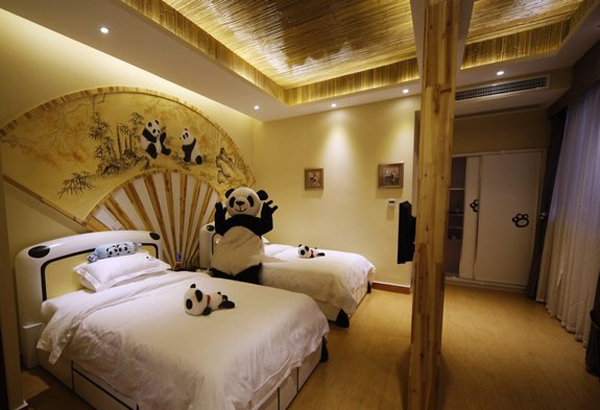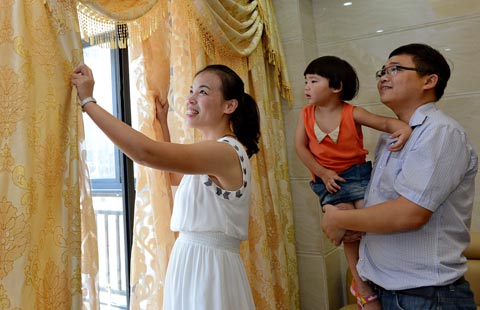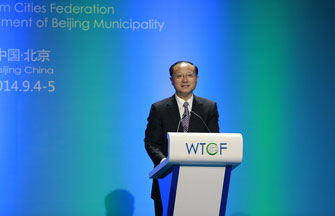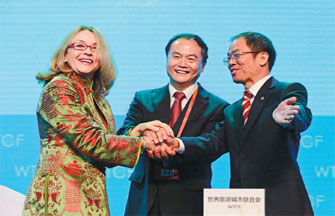Hotel design: why is localization important for Int'l brands?
Updated: 2014-09-17 16:07
By Jiang Wanjuan(chinadaily.com.cn)
|
|||||||||||
 |
|
A panda-themed hotel opened in Sichuan on Feb 25, 2013. The interior and exterior of the hotel is fitted with panda-related decorations and is the first panda-themed hotel in the world.[Photo/CFP] |
When international operators started to open hotels in China decades ago, most of them chose to replicate the design and standards driven from the Europe and US. Now, almost every big brand has an office in China, and they even develop Chinese brands and Chinese standards.
Almost every designer would agree that localization is important for hospitality design, especially at a time when travelers are more sophisticated and well-travelled, and hotels are not only about a place to sleep. A well designed hotel that reminds guests where they are helps to optimize the experience.
How are the international brands adapting their design to better fit the Chinese market? What attracts Chinese guests? During the 2014 Asia Hotel Forum earlier this month, we interviewed two experts on hospitality design - Christian Low, Asia Pacific regional director of hospitality with AECOM, a Fortune 500 designing provider, and Eric D. Ullmann, president and design principal of DMU, a global leader in hotel interior design.
Some hotels adapt for the local market, while others prefer not to, to keep the identity consistent anywhere else. What's your understanding on this?
Christian Low: Historically it is true that certain large operators tended to emphasize brand uniformity regardless of context. However this has changed dramatically. The trend across the board is clearly for most hotel products to provide guests with unique localized experiences and design character.
How important is the design to a hotel? Is it important for a hotel to have its unique personality?
Low: A well designed and integrated hotel is essential to the success of a larger development. The most successful hotels are those that attract neighborhood users as well as typical guests. Every great hotel has its own unique "design soul." Actually, the most innovative architectural design firms have always driven localization and uniqueness in design, no matter what property they work on or operator they design for.
Eric D. Ullmann: People travel not only for business, but also to experience the city, the region and culture. If a hotel doesn't speak to that, I don't think the end user will get the optimal experience.The designer really needs to understand who the end user is, and has the hotel designed for the end user. So we can design something very unique, memorable, and the best marketing possible is that they tell their friends about the experience they had.
Related Stories
Hotel roundup 2014-09-12 07:25
InterContinental opens 5-star hotel in Lhasa 2014-08-26 09:47
Kempinski Hotel Taiyuan celebrates first anniversary 2014-08-26 17:10
Riding the hotel wave on the cusp of change 2014-08-22 07:15
Awards to recognize China's outstanding hotel individuals 2014-08-19 08:56
Today's Top News
How Alibaba IPO learnt from Facebook's mistake
Russia to beef up troops in Crimea
10 problems of Chinese society
PBOC injects $81b into banks
iPhone 6 spawns Chinese satire
US general 'not rule out' larger ground role in Iraq
China's door to open wider, Li says
Shanghai FTZ official removed
Hot Topics
Lunar probe , China growth forecasts, Emission rules get tougher, China seen through 'colored lens', International board,
Editor's Picks

|

|

|

|

|

|







